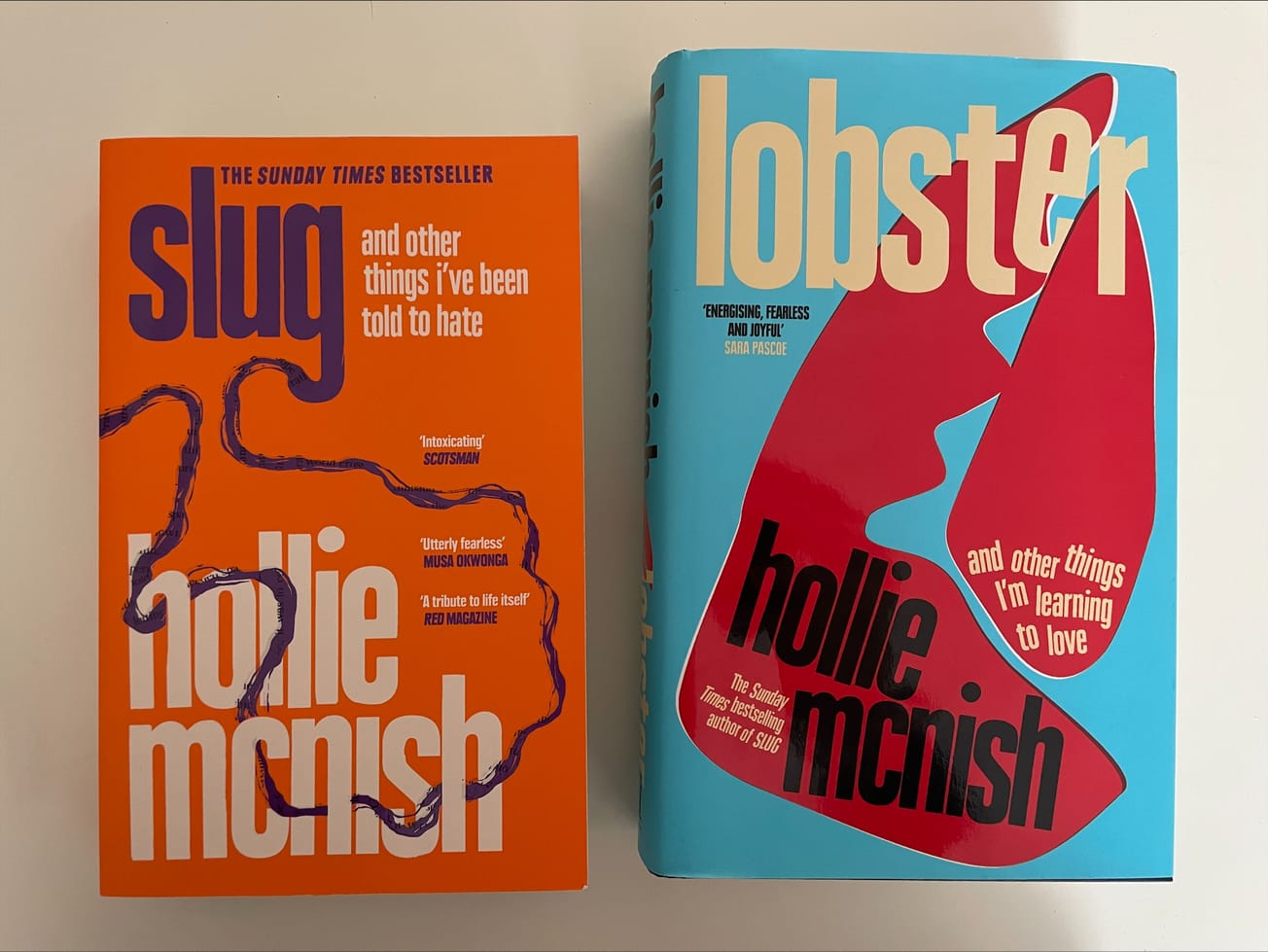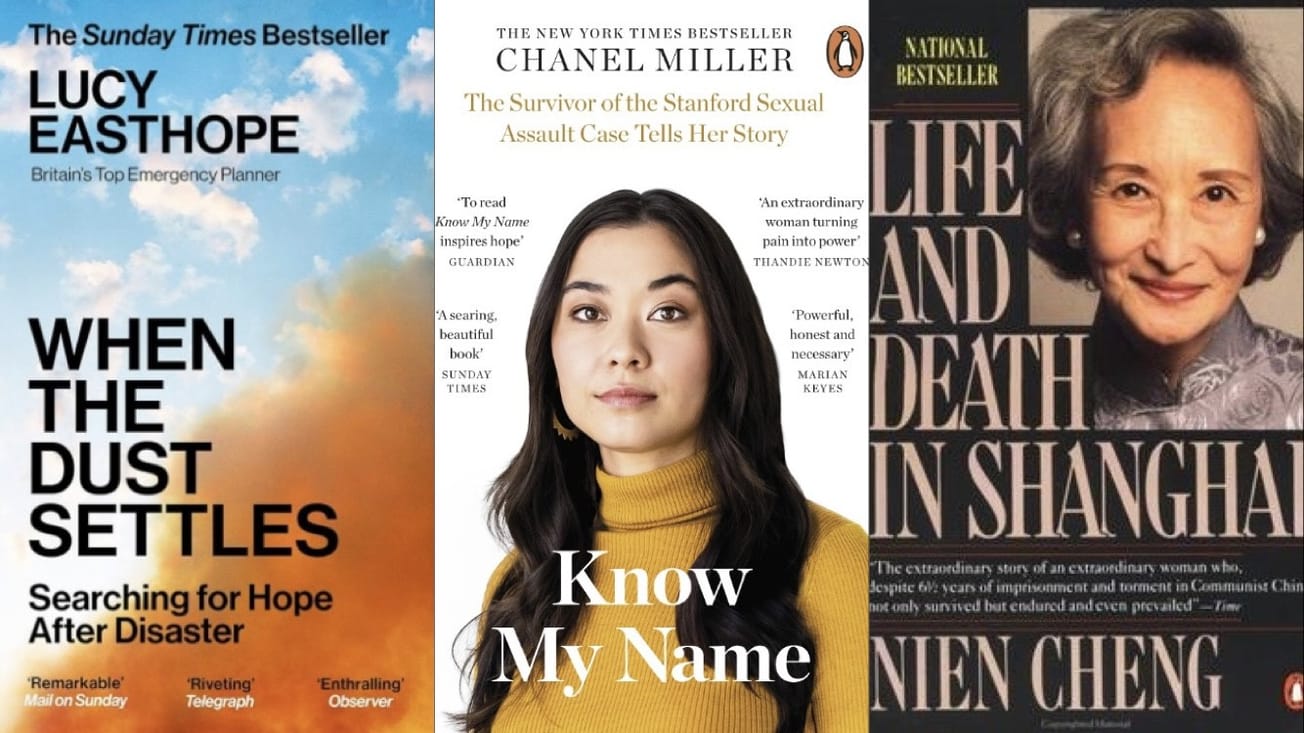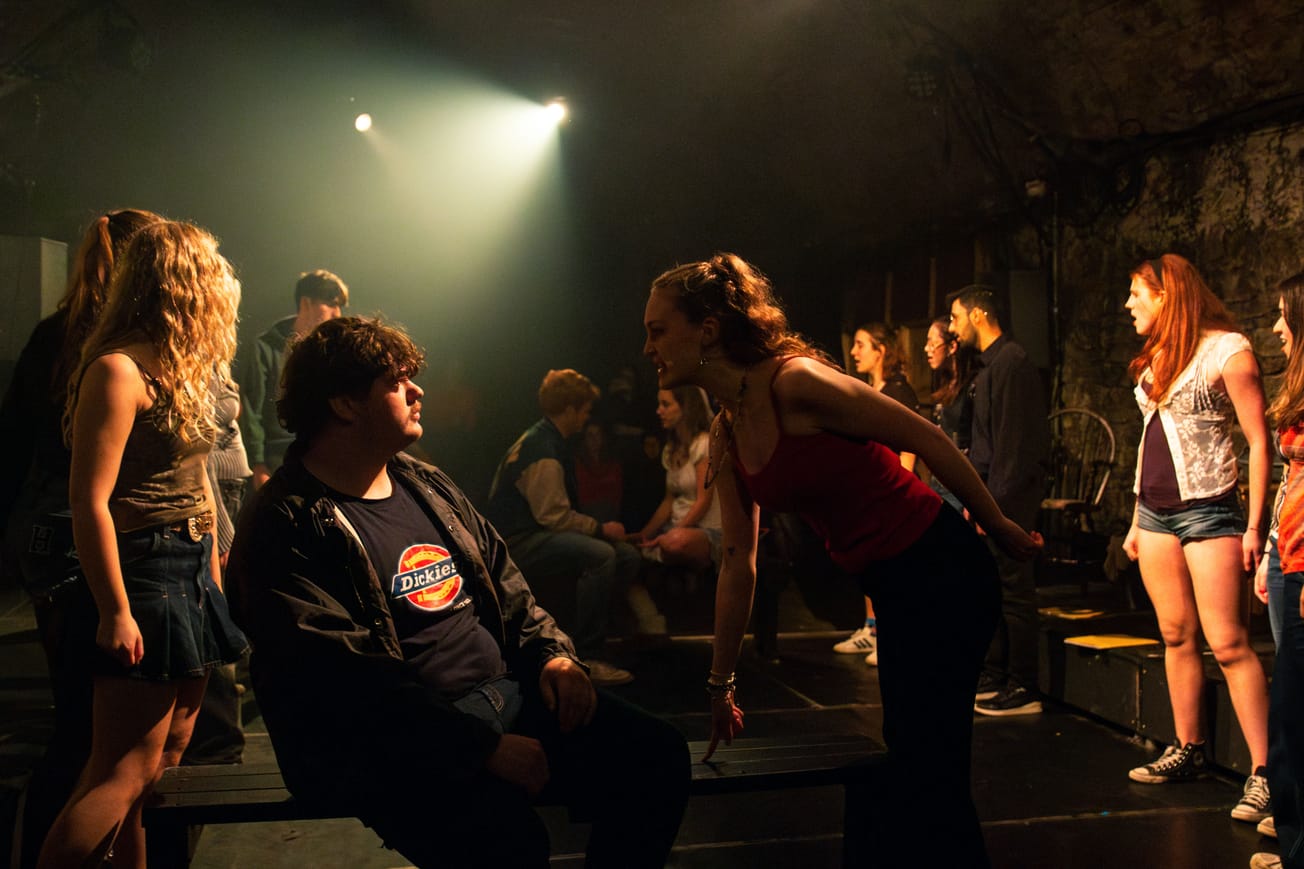by Sophie Mayhew, Third year, Liberal Arts
As a passionate theatre advocate and part-time usher at Bristol Old Vic, I thought it would be an interesting insight to hear from the creative body as to how the theatre coped during lockdown, and equally how through their innovative changes, they have adapted in order to thrive amidst the on-going pandemic.
I spoke with Sian Weeding (SW) – Producing and Programming Coordinator – and OBE Tom Morris (TM) – Artistic Director of Bristol Old Vic – to hear their thoughts.
SM: “So first of all, I’d like to go back those many months ago to March, when you had a rich and diverse Spring and Summer programme scheduled with companies rehearsing in full swing – how exactly did Bristol Old Vic deal with the crisis in the first weeks of lockdown?”
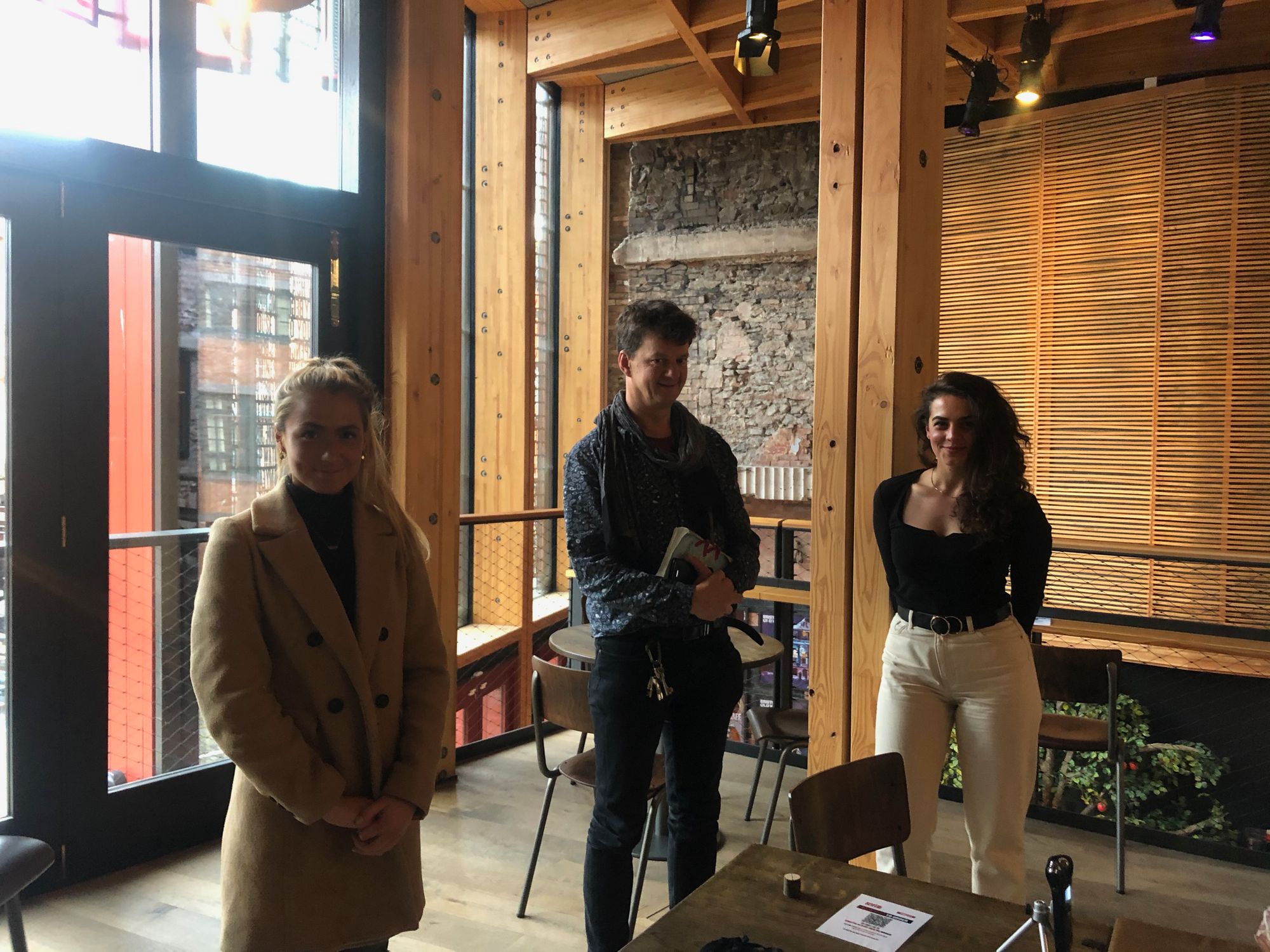
SW: “It was brutal because Boris Johnson made the announcement on the press night for our show ‘The Red Lion’, which was particularly difficult because there was a member in the company whose stage debut it was going to be – he was so excited to perform!
So when the announcement was made, we were all in a state of shock…trying to wrap our heads around the length of time this would be as we all had no idea what it would ultimately mean. So going to a company and telling them we can’t put on your show, and seeing their faces as we all try and work out what this means to us individually and what this means to us as a theatre…was so deeply upsetting.”
TM: “From my point of view, I’d be talking to Charlotte Geeves – our executive director – going ‘are we going to have to close…?’ – and then if you remember, there was actually a whole lot of controversy at the beginning, as Boris Johnson told people not to go to the theatre; but didn’t tell the theatres to close – which was madness.
So when the announcement was made, we were all in a state of shock
So in terms of impact on the business, it was a massive impact. In 2020, over 70% of our funding came from ticket sales – so to close, we’ve lost 70% of our turnover – we were bust basically, straight away! So you have that business impact at the same time as the human impact. The Job retention scheme then allowed us to send everybody home…”
SW: “But this made me question my purpose…and what else I had to offer. Especially in an industry where so much of your soul and heart is given to it – what are you without it?!
It was very bizarre being so close and invested in Bristol Old Vic and then feeling very cut off from it – it was a very small team of only 14 people that were left to work out what our offer to an audience is that can’t be there physically…”
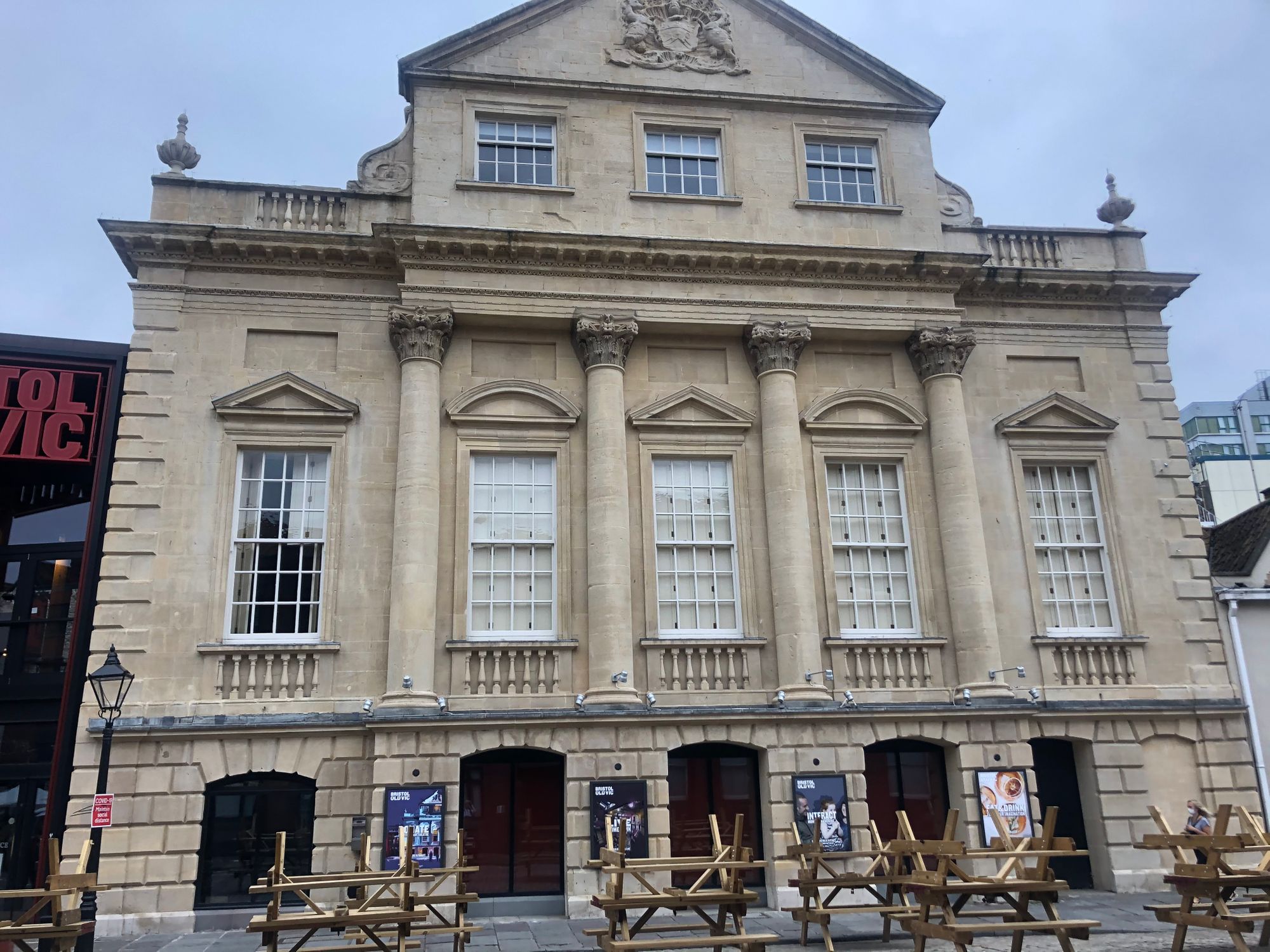
SM: “As the crisis emerged into being a very real and permanent thing, how did you go about thinking about creative ways to keep your loyal followers and the Bristol communities engaged with supporting the theatre? Tell me more about Bristol Old Vic at Home…”
TM: “So – we decided pretty much straight away to move some of our activities online and the most successful part of that was streaming shows – which felt to us a very important opportunity to learn how to collaborate better than we had before.”
SW: “It was always something that theatres had wanted to do but lockdown forced it to become a priority very quickly.”
We decided pretty much straight away to move some of our activities online and the most successful part of that was streaming shows
SM: “I was certainly grateful for your shows that were streamed within the Bristol Arts Channel during lockdown - I think I’m right in saying you racked up around 335000 views …that’s amazing!”
TM: “Yes so the tiny team that weren’t on furlough then basically transformed to become a digital marketing and publishing team. We got some advise from THE SPACE – funded by the BBC and the Arts Council together – and then moved some of our shows online for free. At that point there was no track record of charging for that kind of content on the internet.”
SM: “I was so relieved to hear of the economic lifeline you were handed by the Cultural Recovery Fund, how will you utilise this financial support? Have you managed to sustain this support since reopening?”
It was always something that theatres had wanted to do but lockdown forced it to become a priority very quickly.
TM: “As soon as the Government started sloping down the JRS (Job Retension Scheme) – our business became unviable again, so we then had to go through a consultation process and lose a third of our staff – which was horrific.
So when we finally heard that the grant was going ahead – after the government took 3 months to hear it - we read the rules like everybody else and made the best argument we could about how we would spend the money if we were lucky enough to get it. Then like most other people, we got it. So this funding essentially means we don’t have to do another round of redundancies and it gives us somewhat of a platform to plan a programme between now and April.”
SM: “I was lucky enough to usher your first live show again for Emma Rice’s company Wise Children and their show ‘Romantics Anonymous’. This was one of the first live shows in the country I believe! You received a standing ovation and so many audience members appeared overwrought with emotion. What was this like for Bristol Old Vic? How do you think live theatre has the power to do this for people?”
LIVE THEATRE ALERT: We've got four more bubbles of seats (2x2 & 2x3) available for Sunday's in-person performance of #RomanticsAnonymous. If, like us, you can't want to finally be back in the theatre, grab 'em quick: https://t.co/omIr4AJhiJ pic.twitter.com/Da83ERg0J2
— Bristol Old Vic (@BristolOldVic) September 25, 2020
SW: “I think what people are experiencing at the moment is apathy…I don’t think people are allowing themselves to feel what’s going on at the moment because we’re in a kind of ‘trauma’ stage. When you go somewhere when you’re asked to experience empathy, you then change your mode – and when you’re in a collective, you feel safe and attune to it.
So when you’re in that space and an audience jumps up and starts clapping, it’s because everyone’s been allowed to – that’s a huge part of the processing, therapeutic side of what we need to be doing at the moment – we need to be allowing people to come into a safe secure space, where they can be allowed to feel those emotions, so that we can make sense of what’s going on at the moment.
Because we’re still in it! And if we can find moments right now where we can allow that little pressure valve to just open up and release some emotion, we can go back into our lives and start to feel that we have actually processed something – and it’s a long journey to be able to do that, but that’s what we’re able to help with – allowing a collective back into a space; safely.”
If we can find moments right now where we can allow that little pressure valve to just open up and release some emotion, we can go back into our lives and start to feel that we have actually processed something
TM: “But it’s also in terms of what we can do with live streaming – because although you aren’t sat with people, you have the knowledge that people are doing the same thing that you are. Which is incredibly comforting.
We are looking at how we can create a model whereby we play to people simultaneously in the flesh, and at home. And so we want to create an opportunity for people at home, who feel very isolated – to look at our auditorium and remember what it’s like to be sat in there with other people.”
SM: “And therefore I suppose, how much of an obligation do you feel as the Artistic Director, Tom, to produce content that speaks directly to some of the key themes of this strange COVID time – such as growing inequalities, death and suffering, immense socio-economic resurrecting? Will you look to include these topical, socio-political themes in pieces to come? Or do you believe, as Sian has talked about, that these themes are already addressed in the response of an audience…?”

TM: “Well, I do think that anything you put on a stage, changes its meaning depending on what’s going on around it.
From the end of August, we set up our ‘courtyard’ space, and there was one week where we had four performance poets on stage, and none of them had performed for five months. And we had an audience who loved performance poetry, again, who hadn’t seen any performance poetry in five months.
And it was like a love story really. These people really, really wanted to be in the same room. Every single person was there with such an intense focus – it was the best audience; it was like people coming out of a cave, seeing the first flower for 9 years! There was that intensity.
I do think that anything you put on a stage, changes its meaning depending on what’s going on around it.
In terms of what we put on – when you get those levels of intensity; and obviously it will change as time passes, but it does give us a kind of freedom, in what we put on – which sits alongside the economic constraints…we can only sell a 1/3 of the seats.
But I am finding our programming meetings quite exciting – there’s going to be a really interesting range. We’re working now on devising a show for Christmas – and inevitably, it’s going to be about how and whether the city can connect, and change.
There is a possibility of real change – these sorts of themes will resonate with anything we put on anyway. And equally they’ll emerge in anything we make...is my hunch.”
But I am finding our programming meetings quite exciting – there’s going to be a really interesting range.
SM: “What with social distancing measures, what do you see as the main creative and directing challenges involved in producing theatre for audiences in different seating and spaces? Interaction with audience members is often a focus of your shows – have you begun to think innovatively about still including this audience participatory feel?”
TM: “Well – simply, physical audience interaction just can’t happen. Certainly in my work personally, audience interaction is a very, very important element. In relation to this Christmas idea – which will involve part online and live interaction – I guess I’m trying to find a different version of what that live connection is. Just as we all have been, during the whole pandemic.
But - it’s all in a relationship of tension with what happens in the theatre when there is an extraordinary connection with the audience and the stage – and you can’t do that with social distancing, you just can’t.
Bristol Old Vic announces socially distanced and streamed winter season https://t.co/4m4xtBaU9n pic.twitter.com/lrqByAOoiJ
— WhatsOnStage (@WhatsOnStage) November 5, 2020
SM: “To me, the power of theatre within communities is so necessary and valuable. I think now that students don’t have nightclubs and gigs to go to, they should invest in going to a live show at the theatre instead! How do you think you can attract more student audiences to the theatre?
TM: “In the long term, as our capacity regrows, I think there’s a massive opportunity for us. There’s always been a trickle of student tickets…we do now have a ‘pay what you can’ ticket scheme – which is connected to the Seat Out to Help Out campaign.
Basically, if you buy a ticket for a show in the theatre, you can either self identify as a concession or you can pay standard price, or you can do the Pay Forward price – which is essentially for those theatre lovers who want to donate a little bit extra – OR you can Pay Forward and Pay for the Empty Seat next to you which we can’t legally sell – which really helps us.
We’re trying to put together a pricing system that still welcomes everyone
So the idea is that people can either give what they want or what they can afford. We’re trying to put together a pricing system that still welcomes everyone; that’s the idea.
SW: “Some people aren’t going to have as much disposable income as before the pandemic, and some people are. And so, it’s giving the responsibility over to the people – saying ‘what do you want to pay for this?’
Equally the programming is going to be very fresh and exciting. And it’s going to be doing something that we hadn’t created before the pandemic… in creating this space into becoming a ‘going out’ kind of atmosphere. We had a cabaret act in here a couple of weeks back, and the audience that we had in here was so different…it felt like a going out atmosphere and energy.
One play, two mediums: digital theatre in the age of lockdown
Opinion | The Arts are important. Don't let the Tories tell you otherwise
So actually, the work that we programme, that is the biggest influence in why people come – it’s about content. And so if we can start building up a regular night, then we can build ourselves into a venue that feels younger and fresher – and take away premonitions about what theatre used to be. And I think it should be a dialogue between students – should it be escapism or should it be some form of political activist theatre students want to engage in…?”
SM: “Thank you both so much for your time - it’s been so great to hear about, for me, one of the most important venues in this city. It’s been great to hear about your progress post lockdown and your plans for the future – best of luck!’
Featured Image: Epigram / Dulcie Godfrey
Are you excited for the return of live theatre?



